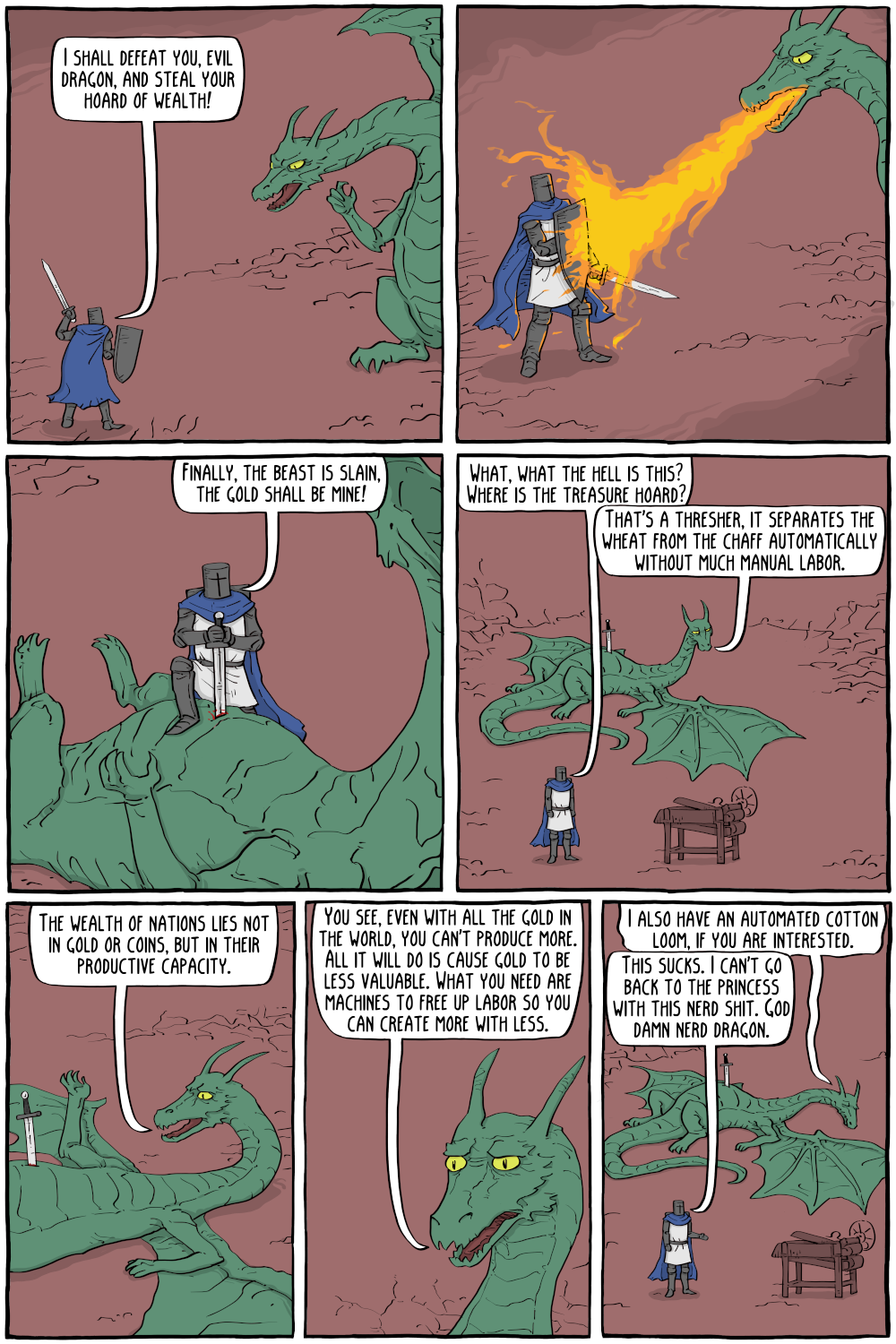
The Cotton Looms get all the press in the early industrial revolution, but the Threshing Machine really might be the biggest jump in productive capacity in the history of the world. It cut out so much manual labor (people used to have to bash flails against the grain for hours and hours to separate the seeds) that there were riots all over because it caused so much unemployment and social upheaval. The famous Luddites, who people think of as being opposed to all technology, were mostly mad about automated cotton looms, and their consequences on society. They even went so far as destroying the looms (and other similar movements destroyed threshing machines). They weren't just backwards thinking technology haters though, but rational people who noticed that there was something deeply wrong with how society was organized that a machine which improved efficiency so much was causing poverty and even starvation among the very workers who it should have benefited. It wasn't the Luddites who were irrational, but the structure of society itself. After all it should be the people doing back breaking work who are most happy about a machine replacing them, but because all efficiency gains go to the owners, those people are simply out of a job. We've seen this time and time again under capitalism, and is even going on right now with AI.
The dragon is based on Adam Smith, who noticed these kind of improvements in production were the key to increasing the wealth of a given society, and that reorganization of society from feudal lords, who largely spent their money on luxuries, to industrial capitalists, who spent a lot of their money on "research and development", i.e. improving the efficiency of their factories, was causing economic growth and ever increasing wealth. In order to modernize, societies essentially had to get rid of the feudal lords put all of their money into the hands of capitalists as much as possible, to kick start this kind of economic growth.
Permanent Link to this Comic: https://existentialcomics.com/comic/540
Support the comic on Patreon!










